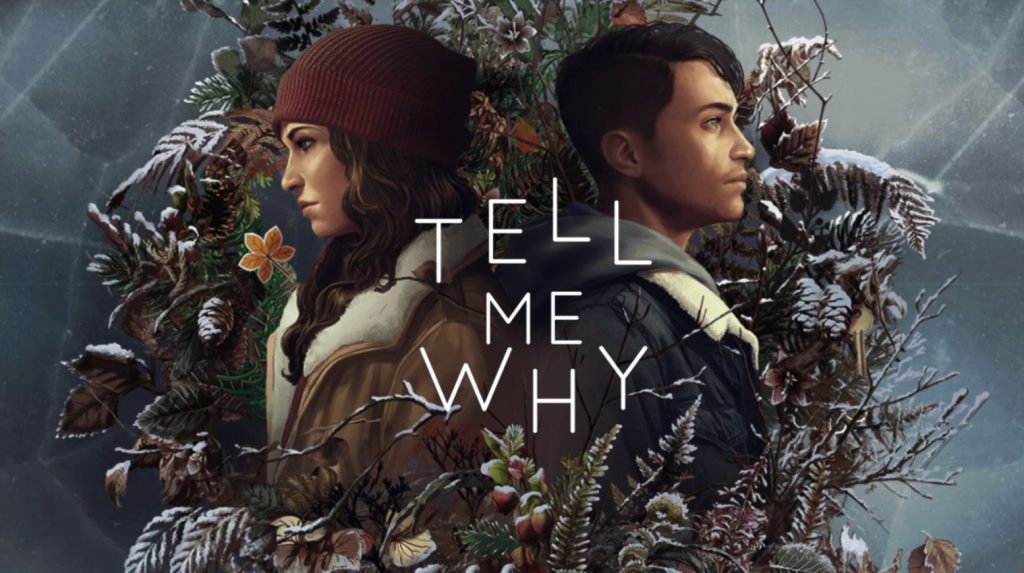
Tell Me Why, Tyler Ronan and DONTNOD’s strides towards complexity and authenticity in their characters
When DONTNOD released the trailer for Tell Me Why, excitement filled the air. DONTNOD have previously worked wonders with games like Remember Me, Vampyr and the Life is Strange series. They’ve crafted stories that have touched our hearts, and while we’ve yet to see Tell Me Why and what it has on offer, we’re optimistic.
Of course, that doesn’t mean there isn’t skepticism about their latest title either. Tell Me Why looks to tell an exciting story, and we’re intrigued that a trans man is one of the main protagonists within this story. But we, as well as our contributors, readers did have some worries when the game was announced.
What would Tyler Ronan, the main protagonist alongside his sister Alyssa, be in this story? Would it just center around his pain of what he had to deal with growing up, or would there be authenticity in his character that went beyond this character’s anguish being milked in order to provide cis players entertainment?
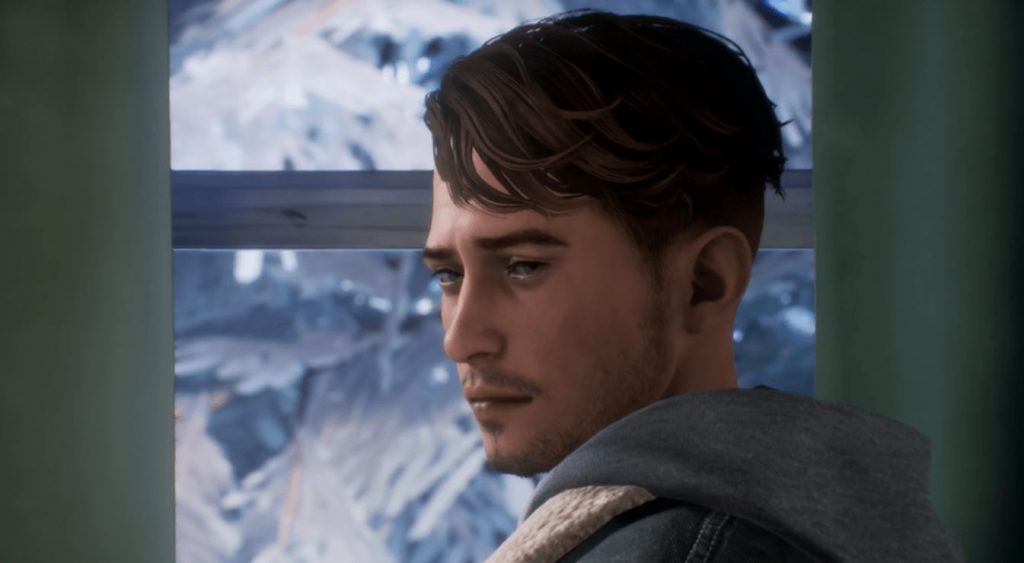
It was these questions that I was determined to find the answer to. So, thanks to an exchange of emails, I was very fortunate to get to speak to Florent Guillaume, Game Director, Stéphane Beauverger, Narrative Director, as well as Morgan Lockhart, Lead Writer.
We know that you’ve consulted with GLAAD about how to best write Tyler, and we’re so very grateful for that, but we wanted to know why? Why is it so important to you to get trans representation with Tyler right?
Florent: When we settled on the idea of having one of our twins, Tyler, be a transgender character, we knew right away the responsibility it would mean to create a character as true to life as we possibly could. We partnered with GLAAD early on to get the feedback and resources we needed to write this character in the most meaningful and respectful way.
At DONTNOD, we strive to create complex, multi-dimensional and touching characters that we hope our players will enjoy. And for that to happen, our characters need to be thoughtful and respectful in order not to hurt any of our players. Trans characters in media are unfortunately too rare, both in movies or TV shows and even more in video games. This game means a lot to us, and hopefully will mean something for people who usually don’t have enough visibility. So we totally feel the responsibility we have to portray Tyler in a positive way.
We’ve talked to a few trans contributors and readers of Gayming Magazine and there is one worry: that Tyler’s story will be just centered around him being a trans man and won’t explore anything outside of that. How important is it to you that Tyler’s story will not be reduced to just one thing?
Stéphane: Tell Me Why is not just the story of Tyler Ronan, a trans man from Alaska. This project is the story of the Ronan family, of whom one member happens to be a young trans man. For sure, his trans identity is an essential aspect of the story, but it’s far from being the only one. Small-town life, family secrets, unexpressed guilt, rural Alaska and Tlingit culture are also crucial themes we try to express.
Tyler only being defined by his gender would be the biggest proof that we failed as writers and storytellers. Tyler is a young man with views on culture and politics. He will express hopes, fears, projects, and plans, and more importantly, he also has flaws. He is a human being, with all his complexity, carefully crafted by our writing team before being offered to the public through Tell Me Why. This is also true of his sister Alyson, and of all the characters of the story.
Has there been any other consultation outside of GLAAD? Who?
Stéphane: For sure, GLAAD has been a key resource for whenever we needed input on the depiction of Tyler’s trans identity, but it was definitely not our only source. Feedback from LGBTQ colleagues at DONTNOD, friends, family and academic research, have all been part of our will to improve ourselves on how we could respectfully write about trans themes.
Florent: Outside of GLAAD’s consultation and the resources Stéphane mentioned, we’ve also engaged in a more traditional user research approach with several playtests throughout development (and still ongoing), starting as early as testing the story elements out of PowerPoint presentations and playtesting pre-alpha, alpha and beta builds. Thanks to Microsoft and GLAAD’s support, we have been able to include transgender and allied players in every UR test, and they have given us invaluable feedback.
Morgan: In addition to the above, Tyler’s actor, August Black, has been an integral member of the creative team. We’ve been lucky to talk to him about many aspects of his life and transition. It was important to us that he felt comfortable speaking up about anything he wanted to share. If a line of dialog or character didn’t ring true to August, then it didn’t work for Tyler. In addition to working with August for trans representation, we’ve also been collaborating with the Huna Heritage Foundation, an organization that represents the Alaskan Tlingit community. Our story takes place in the fictional southern Alaska town of Delos Crossing and includes Tlingit characters, and we wanted to make sure we portrayed their culture in a respectful way as well.
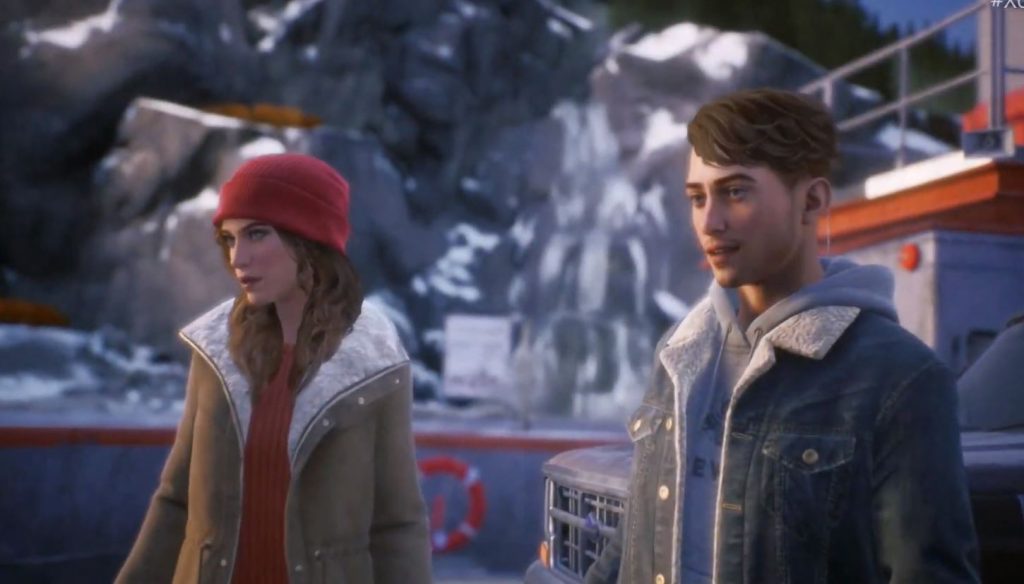
How did the decision come to include a trans protagonist?
Stéphane: At DONTNOD, we rarely start by defining the characters. We start with the story’s themes, then we figure out which character would fit the story best. During the conception phase, we first thought about the twins only after we decided the story would be about family secrets and siblings. The idea of having one of the twins be a trans person emerged later, when it was time to add flesh and specificity to each twin. Then, once we decided Tyler would be a trans man, it was time to go back to the twins and the rural Alaska topics, and see how those would resonate with each other. For us, to craft a good story is to find balance. It is a highly iterative process where we are always open to adjusting our plans based on new feedback.
DONTNOD have been known to tell amazing stories – Life is Strange, Vampyr, etc – did you feel pressured to try and ‘one-up’ yourselves with Tell Me Why, and if so, how?
Stéphane: I can only speak for myself on this one. For me, I did not feel particularly pressured. As a narrative director, my job is to craft original and intriguing stories which resonate with compelling game design. Each project is a challenge for different reasons. As I often say, a video game is the result of the many obstacles a team has been able to overcome during the production.
How do you feel about the skepticism from individuals who are wary about you telling this story of a trans character? We know that in Life is Strange 2, homelessness, racism, etc are all huge parts of that story and we’d argue that you’ve done a superb job in addressing those issues.
Morgan: Skepticism is healthy, as the game industry often falls short when it comes to portrayals of marginalized groups. Without an adequate depth of knowledge, it’s easy to fall back on simplistic and often harmful tropes. Given how often these types of portrayals have failed the trans community, we hope we have taken positive steps forward in the creation and portrayal of Tyler.
Stéphane: In our age of mass media and social networks, skepticism is part of the job, I suppose. My intent is not to deliver something that will please everybody (this would be a selling approach), but something that is meaningful to those it portrays and helps to spark genuine discussion on important issues.
How do you decide what to write about and what sort of characters and narratives you want to include within the video game?
Stéphane: At DONTNOD, we generally start by deciding what would be a strong theme to talk about, and how it would fit in an interactive experience. Most of the time, it’s just a few words. For the games I worked on, some keywords were “memory” for Remember Me, “vampire“ for Vampyr and “family secrets” for Tell Me Why. Once we have decided that this would be a great theme to talk about, we brainstorm on the specificity of the subject and which characters and narratives would best serve what we want to say about it.
Morgan: Once we know who our main character(s) are, it’s important for us to then branch out and figure out which characters are most dynamic to play alongside them. We work on figuring out how these other characters play against different aspects of our main characters, so that we have a good variety of relationships that can push our characters in new and different ways. Narrowing that down, we also wanted characters who reflected the various experiences of people who might live in rural Alaska, and also who might relate to and have different perspectives on the central theme of the story (“family secrets”) than Tyler and Alyson.
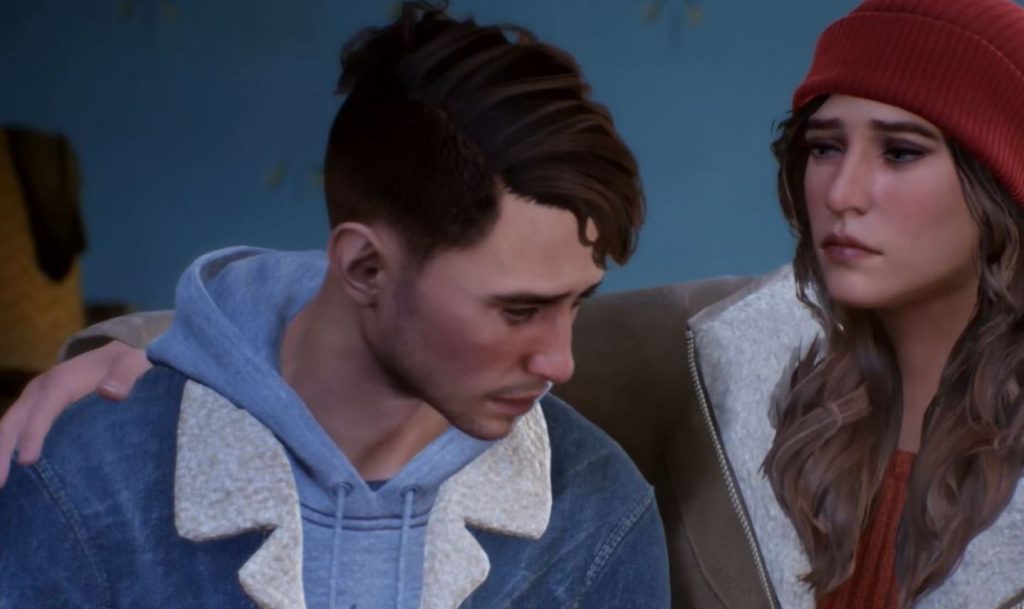
How important was it that you chose a trans voice actor for Tyler? We felt that the inclusion of that was very nice, as we’ve been told a few times that trans voice actors do struggle to find voices that they feel comfortable in taking the role of.
Stéphane: It was a crucial point for us. A point actually so crucial that it was not even to be debated. Since Tyler is a trans man, talking about his intimate journey as a trans person, we needed a trans actor to portray him. Period. I’m also glad that we are working hard to find trans actors for localized language versions of the game.
Florent: From the get-go, there was never a Plan B regarding the casting for Tyler. We knew that if we were to do this game with a trans character, we would have to find the right talent to bring him to life. Throughout the casting process, we’ve met a lot of incredible talents, and trust me there are great trans actors out there who unfortunately are not given enough opportunities. It has probably been the most difficult casting we’ve done, but at the end of the road there’s a unique sincerity, fragility and force that August brings to his performances. Today we feel very lucky and proud of August’s work, and in our eyes he’s a rising star!
Morgan: We’ve often said that even if this project accomplishes nothing else, we hope that it opens doors for our cast members of marginalized identities and helps make authentic casting the norm rather than the exception in the game industry.
What is the difference between Tell Me Why and Life is Strange? Both are known for their focus on people and how external sources affect them. What would you say makes Tell Me Why different?
Florent: Tell Me Why and Life is Strange are not part of the same universe or the same brand. For sure you can feel the studio’s DNA in the genes of both games, but they are developed by two distinct teams, with different visions and sensibilities of the narrative adventure genre. Just like movies, different directions result in very different experiences as we focus on what makes our stories unique. Tell Me Why explores the themes of family drama and mysteries, as well as the weight of conflicting memories. With our two playable characters in Tell Me Why, we focus on their intimacy, their thoughts, and what brings them together or risks tearing them apart. From a gameplay perspective, Tell Me Why revolves around our characters’ ability to share their thoughts and memories through a unique feature that we call “The Bond.” You’ll be able to learn more about that soon.
How important is the player’s choice in Tell Me Why and how sensitive are these choices? For example, in The Outer Worlds, you’re not given the option to be an ass to Parvati when she tells you she’s a lesbian asexual. Will this be the same with Tyler?
Stéphane: Tyler is one of the two characters controlled by the player in the game. The other is his twin sister Alyson. Since they share progressive views on trans issues, players won’t be offered the opportunity to express negative views. But both Tyler and Alyson will sometimes be exposed to other characters’ lack of knowledge or resistance to trans identities, and players will be offered different choices to react to ignorant statements.
Morgan: Player choice is essential to engagement in our narrative. We want people to feel the influence they have on the course of the Ronans’ lives and their relationships. However, since our story is character-driven, we constrain our choices to things that make sense for who our playable characters (Tyler and Alyson) are at their core.
In an open-world game that is driven more by world story and plot, there is room to allow for more versions of who the player character could be by offering more dramatically different choices. If we allowed too many potential versions of Tyler and Alyson, their actions outside of moments driven by player choice might end up seeming inconsistent. And like Stéphane said, one of those core qualities is that they are both progressive young people.
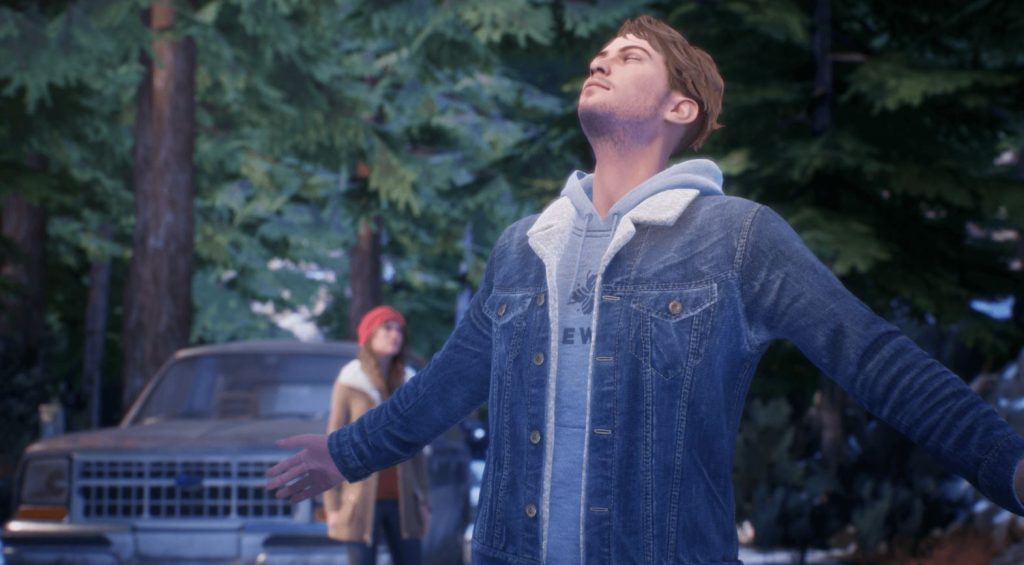
We are incredibly grateful that DONTNOD talked to us about Tell Me Why and listened intently about not only our reservations but that of our trans readers and contributors.
That said, we are very excited to see what DONTNOD has in store for us and you. Do you feel the same?
Tell Me Why will be releasing on PC and Xbox One sometime in 2020.

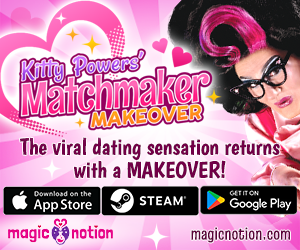




Comments are closed.